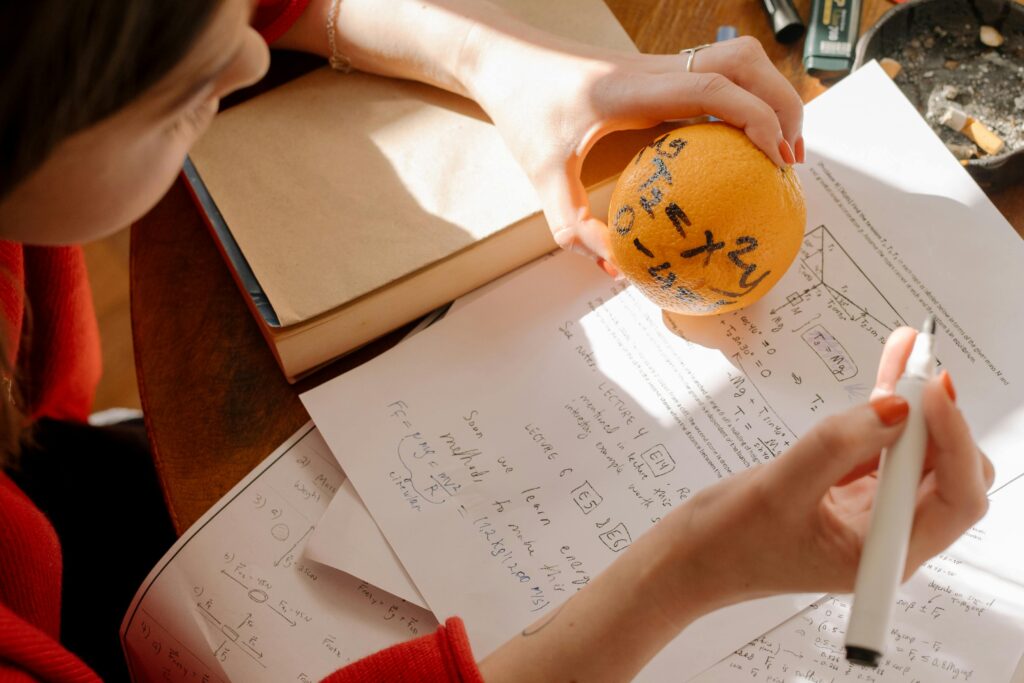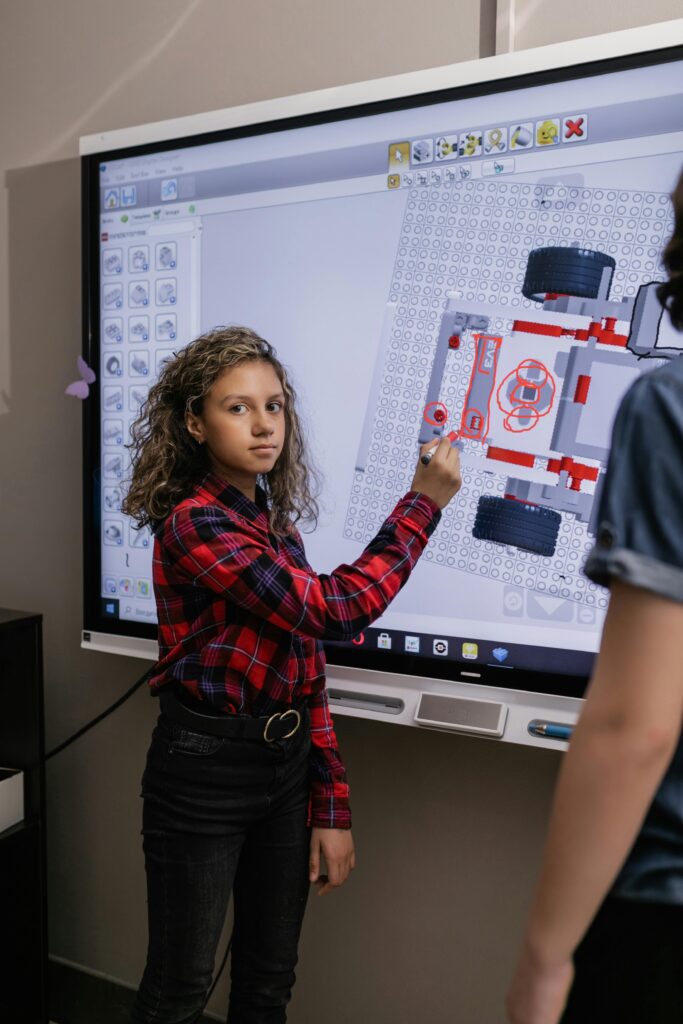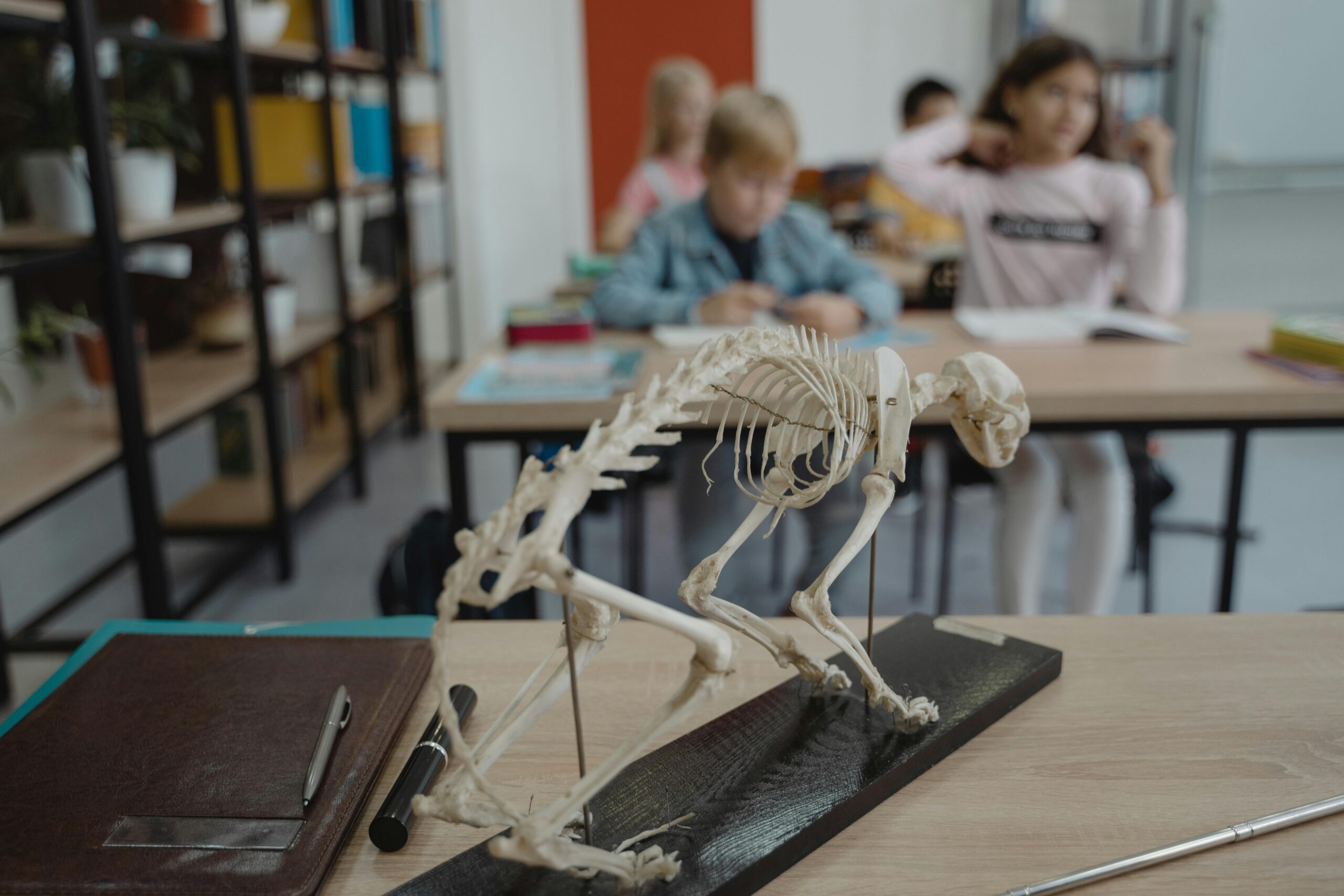Overview of Ontario’s Best Gifted Programs: What You Should Know
Ontario is home to some of the best gifted schools, offering unique opportunities for children with exceptional abilities. As a parent, you want to make sure your child is in an environment that challenges and nurtures their potential. This guide will help you navigate Ontario’s top gifted programs, so you can find the perfect fit for your child.
The Peel District School Board: A Hub for Excellence
One of Ontario’s standout gifted programs is offered through the Peel District School Board. Known for its diverse range of schools, the Peel gifted program focuses on developing critical thinking, creativity, and leadership skills. If your child thrives in an academic setting with a challenge, Peel’s program might be a great match.
Peel’s gifted programs start in elementary school and continue through high school, ensuring your child has a consistent and supportive environment throughout their educational journey. These programs emphasize problem-solving and inquiry-based learning, helping students dive deep into complex subjects. Plus, your child will be surrounded by like-minded peers, fostering collaboration and academic growth.
Toronto District School Board: A Leader in Gifted Education
Toronto’s gifted programs are some of the largest and most well-established in Ontario. The Toronto District School Board (TDSB) offers specialized gifted classrooms where students receive tailored instruction. Here, the focus is on challenging students while providing a supportive and stimulating learning environment.
The TDSB gifted programs use an enriched curriculum designed to push students beyond the typical grade level. Students work on advanced projects, engage in deeper discussions, and explore topics in ways that cater to their intellectual curiosity. If your child loves to learn and is eager to be challenged, the TDSB could be an ideal choice.
Ottawa-Carleton District School Board: Balanced and Supportive Learning
Ottawa also has some fantastic options for gifted education. The Ottawa-Carleton District School Board offers a range of gifted programs that cater to students from Grades 1 to 12. Their program is known for its balanced approach to academics and social-emotional development, recognizing that gifted children need support in all aspects of life, not just the classroom.
One of the standout features of the Ottawa-Carleton program is its focus on collaboration. Teachers work closely with parents to create individualized learning plans, ensuring each child’s needs are met. This is a great choice if you want a program that not only challenges your child but also provides a supportive and understanding environment.
York Region District School Board: Building Future Leaders
York Region’s gifted programs are well-regarded for their emphasis on leadership and personal development. The York Region District School Board believes in nurturing the whole child, offering a curriculum that goes beyond academics. In addition to challenging classroom work, students have the chance to develop leadership skills through special projects, extracurricular activities, and community involvement.
If your child has a strong sense of curiosity and leadership potential, York’s program could be the right fit. This school board offers both full-time and part-time gifted programs, giving you flexibility based on your child’s needs. The full-time program offers an immersive learning experience, while the part-time option allows your child to experience a balance between regular and gifted classes.
Private Schools: A Tailored Approach to Gifted Learning
If you’re looking for something beyond the public school system, Ontario also boasts a range of private schools that offer specialized gifted programs. These schools often provide a more tailored learning experience with smaller class sizes and a higher level of individual attention.
One of the major benefits of private gifted programs is the ability to customize learning to fit your child’s specific strengths and interests. Many private schools offer project-based learning, international baccalaureate (IB) programs, or STEM (Science, Technology, Engineering, and Math) focused curriculums. This is a great option if your child has a particular interest or excels in specific subjects like math, science, or the arts.
How to Choose the Right Program for Your Child
Choosing the right gifted program can feel overwhelming, but it doesn’t have to be. Start by considering your child’s strengths and learning style. Does your child prefer a fast-paced environment? Or do they thrive in smaller, more individualized settings? Understanding their needs will help narrow down your options.
You can also talk to your child’s current teachers for recommendations. They may have valuable insights into which programs could best support your child’s growth. Many gifted programs also offer information nights or open houses, allowing you to visit and see the school in action. This can be a great way to get a feel for the program and ask any questions you might have.
Supporting Your Child’s Transition into a Gifted Program
Once you’ve chosen the perfect program, it’s time to help your child transition. Moving into a gifted program can be exciting but also a bit intimidating for some students. You can ease this transition by talking with your child about what to expect. Let them know they’ll be learning at a more challenging level, but remind them it’s all about helping them reach their full potential.
Encouraging open communication is key. Make sure your child feels comfortable sharing how they’re feeling about the new program. If they find certain parts challenging or overwhelming, work together to find strategies that can help. Schools often offer support for both academic and emotional needs, so don’t hesitate to reach out if your child needs a little extra guidance.

Gifted School Curriculum Highlights: Advanced Learning Opportunities
When your child enters a gifted program in Ontario, they’re not just stepping into a regular classroom. Gifted schools offer advanced learning opportunities designed to challenge and engage your child in new ways. These schools tailor their curriculum to meet the unique needs of bright and curious learners, ensuring they’re never bored or under-challenged.
In this post, we’ll explore the highlights of a gifted school curriculum, so you can better understand what your child will experience. From accelerated learning to creative problem-solving, these programs are built to foster both academic and personal growth.
Accelerated Learning: Speeding Up the Pace
One of the first things you’ll notice about gifted programs is the faster pace of learning. Gifted students often grasp concepts more quickly than their peers, so schools don’t spend as much time on basic reviews. Instead, they dive into more advanced topics and move through the material at a quicker rate.
If your child loves a challenge and gets bored easily in regular classes, this could be a game-changer. They’ll be learning new concepts that truly stretch their abilities, keeping them engaged and excited. Subjects like math and science might include accelerated coursework, allowing your child to explore complex topics much earlier than their peers.
For example, in math, students may cover algebra, geometry, and even calculus long before their non-gifted classmates. This not only keeps them interested but also prepares them for higher-level studies down the road.
Inquiry-Based Learning: Encouraging Curiosity
Gifted programs often use an inquiry-based approach, which puts students in charge of their own learning. Instead of just memorizing facts, your child will be encouraged to ask questions, explore topics in depth, and come up with their own solutions. This kind of learning fosters critical thinking and creativity, skills that will serve them well throughout their education and beyond.
In inquiry-based learning, the teacher acts as a guide, helping students discover answers on their own. For example, rather than being told how a scientific process works, your child might be asked to design an experiment to explore the concept firsthand. This hands-on approach not only makes learning more engaging but also deepens their understanding of the material.
This approach also works well for subjects like social studies and history, where students are encouraged to investigate historical events or societal issues and think critically about their impact. Your child won’t just learn facts—they’ll learn how to think, question, and problem-solve.
Creative Problem-Solving: Tackling Real-World Challenges
Gifted programs are big on creative problem-solving, a crucial skill for the future. Your child will be exposed to real-world problems and encouraged to think outside the box to find solutions. This could involve working on group projects, where students collaborate to solve complex issues in areas like science, technology, or social justice.
Creative problem-solving activities can range from designing a sustainable city in an environmental science class to finding new ways to address global issues like poverty or climate change. These activities not only push students academically but also help them develop leadership and teamwork skills.
By engaging in these kinds of projects, your child will learn that there’s often more than one solution to a problem. This flexible thinking is one of the hallmarks of gifted education and helps prepare students for the real-world challenges they’ll face in the future.
Enriched Subjects: Diving Deeper Into Areas of Interest
Another highlight of gifted school curriculums is the opportunity to explore subjects in much greater depth. Your child won’t just skim the surface of topics—they’ll dive deep into areas that interest them. Whether it’s literature, science, art, or technology, gifted programs provide enriched experiences that go beyond the regular curriculum.
For example, in a literature class, students might study the works of Shakespeare, but instead of just reading the plays, they could analyze them through different lenses, like psychology or historical context. In science, they might engage in hands-on experiments that explore cutting-edge topics like genetics or quantum physics.
If your child has a particular passion—whether it’s writing, coding, or performing arts—these enriched subjects give them a chance to pursue it at a much deeper level. This not only keeps them motivated but also allows them to explore potential career paths.
Individualized Learning: Tailored to Your Child’s Strengths
Every gifted student has different strengths and learning styles, and gifted schools recognize this by offering individualized learning plans. Teachers work closely with students to identify their areas of strength and tailor the curriculum to meet their needs. This means your child won’t be stuck in a one-size-fits-all approach to education.
For example, if your child excels in math but struggles with writing, their learning plan might include more challenging math problems while providing extra support in writing. This personalized approach ensures that each student can progress at their own pace while still being challenged in areas where they excel.
In some cases, your child might even have the opportunity to skip ahead a grade in a particular subject or take specialized courses that align with their interests. This level of customization ensures your child gets the most out of their education.
STEAM Focus: Integrating Technology and the Arts
Many gifted programs in Ontario have a strong focus on STEAM (Science, Technology, Engineering, Arts, and Math) education. This interdisciplinary approach encourages students to see connections between different subjects and apply their knowledge in new and innovative ways.
Your child might work on projects that combine coding with art or engineering with design. By blending these subjects, gifted programs help students develop a broader skill set and foster both analytical and creative thinking.
The arts play a significant role in gifted programs as well. Whether your child loves visual arts, music, drama, or creative writing, they’ll have opportunities to explore their artistic talents alongside their academic pursuits. This balance between arts and sciences ensures your child gets a well-rounded education that nurtures all aspects of their abilities.

Extracurriculars That Cater to Gifted Students
Extracurricular activities are essential for gifted students in Ontario, offering more than just a way to fill after-school hours. They provide an outlet for creativity, a chance to dive deeper into passions, and a way to challenge your child’s mind outside the regular curriculum. In gifted programs, extracurriculars are designed to match the advanced learning styles of students, ensuring they stay engaged and inspired.
If you’re wondering which extracurriculars are best for your gifted child, don’t worry. We’ve got you covered! Below, we’ll explore some of the top extracurriculars that cater to gifted students in Ontario, giving your child the opportunity to grow, learn, and have fun.
Enrichment Clubs: Exploring New Interests
Enrichment clubs are a perfect fit for gifted students, offering them a space to explore topics that may not be covered in depth during regular class time. Many schools offer a wide range of these clubs, focusing on areas like robotics, coding, creative writing, and even philosophy. These clubs allow students to pursue their interests in a structured yet flexible way.
For example, if your child loves coding, they can join a coding club where they’ll get to work on more advanced projects. Whether it’s designing an app or building a game, the hands-on learning approach will keep them motivated. If writing is more their style, a creative writing club could help them explore storytelling techniques, character development, and poetry.
The best part? Enrichment clubs often offer guest speakers or mentors who are professionals in their fields. This means your child will get the chance to learn from experts and be inspired by real-world applications of their interests.
Math and Science Competitions: Challenge Their Minds
For mathematically inclined gifted students, math clubs and competitions are an ideal way to sharpen their problem-solving skills. Many Ontario schools participate in national and international math competitions like the Canadian Mathematical Olympiad or the Gauss Math Contest. These competitions are designed to challenge students, pushing them to think critically and creatively.
If your child is more science-focused, there are science fairs and competitions that cater to their needs as well. Science clubs often encourage students to design their own experiments, test hypotheses, and present findings to judges. These activities not only boost their scientific knowledge but also help develop research, presentation, and teamwork skills.
Participating in competitions may sound intense, but it’s also fun! You’ll see your child grow in confidence as they tackle challenging problems and celebrate their achievements. Plus, it’s a great way for them to connect with like-minded peers.
Performing Arts: Nurturing Creativity and Confidence
Gifted students aren’t just focused on academics; many also have a creative side that shines in performing arts. Whether it’s acting, music, dance, or visual arts, participating in the arts allows gifted students to express themselves in new and meaningful ways.
Music programs, for example, often allow gifted students to study advanced techniques or join specialized groups like jazz bands or orchestras. If your child is more inclined toward drama, many schools offer theatre programs where they can take on challenging roles, write their own scripts, or even direct performances. These opportunities give your child a chance to build their confidence and develop their artistic talents.
Art-related extracurriculars also have a calming effect, helping gifted students manage the stress that often comes with academic demands. So, whether they’re painting a mural, performing in a play, or composing music, your child will have a creative outlet that balances their more intense academic workload.
Leadership and Social Responsibility: Building Future Leaders
Gifted students often possess strong leadership qualities, and many extracurricular programs are designed to help them harness these skills. Leadership clubs and programs, like student council or peer mentoring, give students the chance to take on real responsibilities and lead their peers.
These programs teach essential skills such as public speaking, decision-making, and teamwork. Whether your child is organizing a school event, leading a club, or mentoring younger students, they’ll gain valuable experience that will serve them throughout their academic and professional careers.
Gifted programs also often emphasize social responsibility. Many schools offer opportunities for students to engage in volunteer work, community service, or environmental projects. This helps gifted students see the broader impact of their actions and encourages them to contribute positively to society. Whether it’s organizing a charity drive or planting trees for a greener future, these activities foster a sense of purpose and empathy in gifted students.
Technology and Innovation: Preparing for the Future
In today’s fast-paced world, technology and innovation play a crucial role in shaping the future. Many gifted programs recognize this and offer extracurriculars that focus on skills like coding, robotics, and engineering. These tech-based clubs are not only engaging but also provide your child with practical skills that will be in high demand as they grow older.
For example, in a robotics club, your child might work on designing and programming a robot to complete specific tasks. This kind of hands-on learning is perfect for gifted students who love to solve complex problems. They’ll learn how to break down challenges into smaller steps and collaborate with their peers to build something extraordinary.
Innovation clubs also give students the chance to explore entrepreneurship, encouraging them to design their own products or business ideas. These programs combine creativity with critical thinking, helping students understand how their ideas can have a real-world impact.
Outdoor Adventures: Balancing Academics with Physical Activity
Not all extracurriculars are academically focused, and that’s a good thing! Outdoor adventures and physical activities offer gifted students a much-needed balance. Programs like hiking clubs, outdoor education, and competitive sports allow them to stay active, develop teamwork skills, and take a break from their rigorous academic schedules.
Outdoor adventures give students the chance to explore nature, learn survival skills, and even study environmental science in a real-world setting. Whether it’s camping, rock climbing, or kayaking, these activities challenge students physically and mentally. Plus, spending time outdoors has been shown to reduce stress and improve mental well-being.
For sports-loving students, joining a team is a great way to build leadership and cooperation skills. Whether it’s basketball, soccer, or swimming, sports teams teach discipline, time management, and perseverance—skills that translate into the classroom and beyond.

The Role of Teachers in Gifted Education: A Parent’s Guide for Ontario
Teachers play a pivotal role in the development of gifted students. They’re not just instructors—they’re mentors, motivators, and guides on your child’s learning journey. In gifted programs across Ontario, teachers are equipped with the skills and resources to help your child unlock their full potential. Their support extends beyond academics, fostering creativity, critical thinking, and emotional growth.
As a parent, understanding the importance of a great teacher-student relationship can make a world of difference in your gifted child’s experience. So, let’s explore the crucial role teachers play in gifted education and how they support your child’s unique needs.
Creating a Personalized Learning Environment
One of the most critical roles a teacher has in gifted education is tailoring the learning experience to meet your child’s individual needs. Gifted students often require a different approach, and Ontario’s gifted programs are designed with this in mind. Teachers work hard to create personalized learning plans that challenge and engage your child, ensuring they don’t lose interest or feel unchallenged.
For instance, if your child excels in math, their teacher may introduce more advanced concepts or encourage them to participate in math competitions. Meanwhile, in areas where your child shows less confidence, teachers offer extra support to keep them on track.
Gifted teachers know how to adapt lessons, using a flexible curriculum that allows students to work at their own pace. This means your child can dive deeper into subjects they love while receiving the help they need in other areas. It’s all about meeting your child where they are and helping them move forward confidently.
Encouraging Critical Thinking and Creativity
Gifted students often have an innate curiosity and a strong desire to explore beyond the surface of what’s taught in class. A key responsibility of gifted educators is to nurture this curiosity, encouraging your child to ask questions, think critically, and solve complex problems.
Teachers often use open-ended questions, thought-provoking discussions, and hands-on projects to push students to think outside the box. For example, instead of simply teaching history, a teacher may ask students to imagine themselves in a historical event and consider how they would have reacted. This sparks deep thinking and helps students apply what they learn in new and creative ways.
Creativity is another area where gifted teachers shine. Whether it’s through art, writing, or innovative STEM projects, teachers give gifted students the tools and freedom to express themselves. This fosters not only academic growth but also emotional and social development, helping your child become a well-rounded thinker and problem-solver.
Providing Emotional Support and Encouragement
Gifted students, like all children, need emotional support to thrive. The academic demands on gifted students can sometimes lead to stress, perfectionism, or frustration. Teachers in gifted programs are trained to recognize these challenges and provide the emotional support your child needs.
A great teacher can be a trusted confidant for your child, helping them navigate the ups and downs of gifted education. They provide encouragement during tough times and celebrate achievements, big or small. Teachers know how to create a safe environment where your child feels valued and understood.
It’s also important for teachers to help gifted students develop resilience. Gifted students may not always succeed on the first try, and that’s okay. Teachers work to show them that mistakes are part of the learning process. By creating a classroom atmosphere that celebrates effort and persistence, teachers help your child build confidence and develop a growth mindset.
Fostering Collaboration and Teamwork
While gifted students often enjoy working independently, it’s essential for them to learn how to collaborate and work as part of a team. Teachers in gifted programs focus on fostering these social skills, which are just as important as academic knowledge.
Group projects, discussions, and peer learning are all tools that teachers use to encourage collaboration among students. This allows your child to learn from their peers, share their own insights, and develop strong communication skills.
Teachers also encourage students to engage in leadership roles, helping them take charge of projects, guide their peers, and learn the value of working together. These experiences help prepare your child for future success, not just in school, but in the wider world where collaboration and teamwork are essential.
Adapting to Diverse Needs and Strengths
No two gifted students are the same. Each child has their own set of strengths, challenges, and interests, and teachers must be skilled in adapting their teaching methods to cater to this diversity. Some students may excel in verbal reasoning, while others might show advanced spatial skills or creative talents. It’s the teacher’s job to recognize these differences and provide opportunities for each student to shine.
For example, if your child shows a talent for music or the arts, their teacher might connect them with extracurricular opportunities or encourage them to integrate artistic elements into their academic projects. This approach ensures that your child’s unique talents are nurtured, and they receive a well-rounded education that goes beyond standard academics.
Teachers in gifted programs also have to consider the social and emotional aspects of giftedness. Some gifted students may feel isolated or different from their peers, and teachers play a vital role in creating a supportive classroom environment where all students feel included and valued.
Building Strong Parent-Teacher Partnerships
Your child’s gifted education isn’t just about what happens in the classroom—it’s a team effort between teachers and parents. Communication is key, and teachers in gifted programs strive to build strong relationships with parents. They keep you informed about your child’s progress, discuss any challenges, and collaborate on strategies to support your child’s growth both at school and at home.
By staying connected with your child’s teacher, you can gain valuable insights into their learning style, strengths, and areas for improvement. Teachers can also provide you with resources, such as reading lists or enrichment activities, to keep your child engaged outside of school.
As a parent, don’t hesitate to reach out to your child’s teacher with any questions or concerns. The more involved you are, the better equipped your child’s teacher will be to support their learning and emotional needs.
Check out how to identify a gifted kid !
Do want your child to excel at Math and Science? Check more information about the Math Olympiads and Science Competitions in Ontario!



